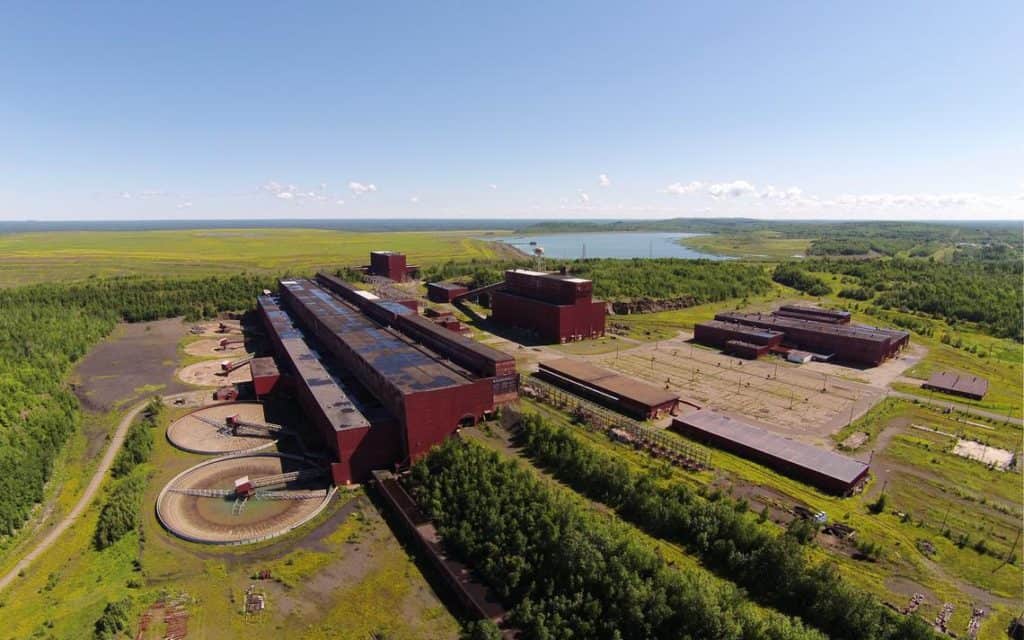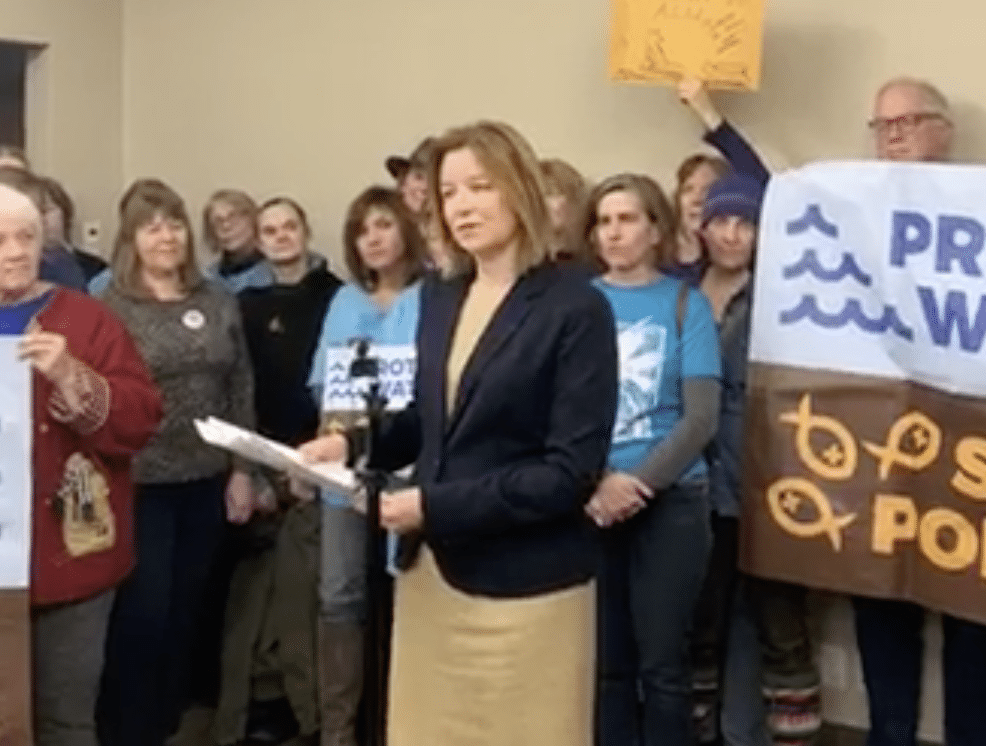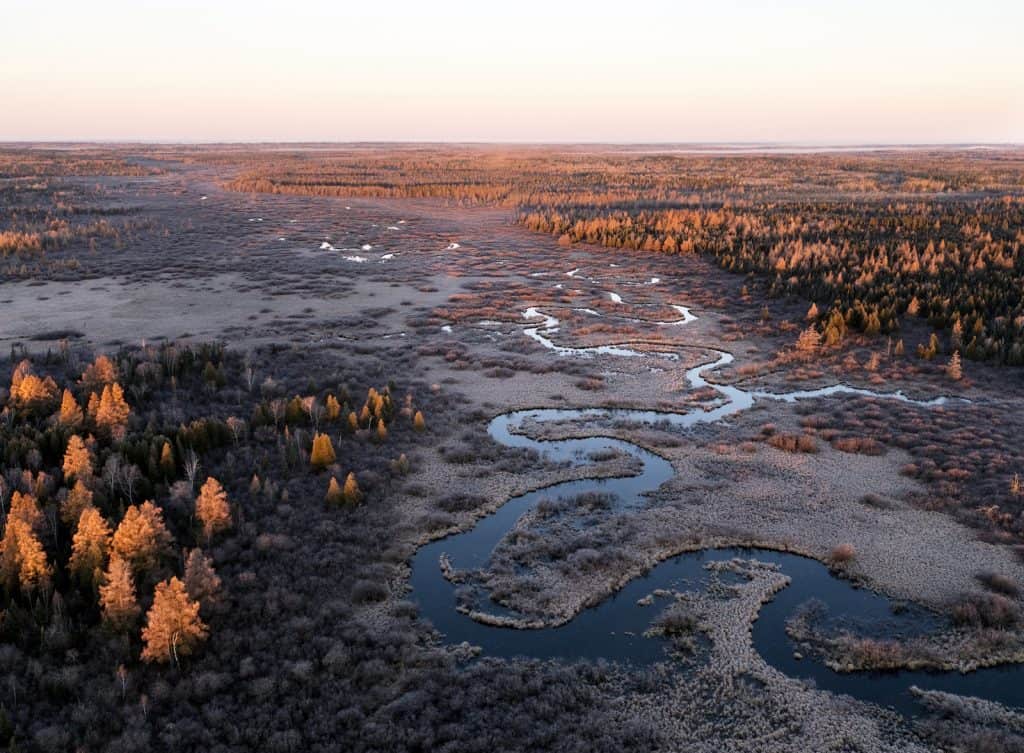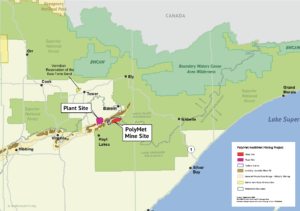
[DISPLAY_ULTIMATE_SOCIAL_ICONS]
PolyMet Mining’s proposal to open a copper-nickel mine in northeastern Minnesota was dealt a significant setback today as the state’s Court of Appeals sided with environmental groups and an Ojibwe tribe, ordering the Department of Natural Resources to go back to the drawing board on the project’s mine and dam safety permits.
The court agreed with the Minnesota Center for Environmental Advocacy, WaterLegacy, and the Fond du Lac Band of Lake Superior Chippewa that the DNR had wrongly refused to hold a “contested-case hearing” about the permits when opponents requested one. It rejected a few other minor arguments.
“The DNR’s decision to deny a contested-case hearing in relation to the NorthMet project was based on errors of law and unsupported by substantial evidence, and the DNR also erred by failing to include a definite term in the NorthMet permit to mine,” the court wrote in its opinion.
The ruling means the DNR will need to hold a contested case hearing, and then decide if it can re-issue the permits in question. A contested case hearing is a standard part of the state’s administrative processes, allowing the public to challenge agency decisions in a proceeding conducted by an administrative law judge.
‘Validates concerns’
In issuing the decision today, the court did not rule on the merits of the issues that are being contested, but simply that they were significant enough to warrant examination and debate in the established process.
Environmental groups held press conferences in the Twin Cities and Duluth after the ruling to offer their reaction.
“Right now, mining is less than one percent of our economy,” said activist Bob Tammen of Soudan. “We’re sacrificing our air, our water, for something that’s doing very little for the great state of Minnesota.”
PolyMet seeks to mine copper, nickel, and other metals at a site near Hoyt Lakes. It would be the first such mine in the state, despite more than a century of iron mining, and presents new environmental threats. The metals would be extracted from sulfide ore, raising the risks of acid mine drainage contaminating the St. Louis River headwaters.
Because of the risks and other companies also interested in similar projects, the mine proposal has received considerable criticism as it potentially sets precedent for how other such mines may be regulated.
“The Fond du Lac Band of Lake Superior Chippewa is pleased with the decision of the Court of Appeals, which recognizes that significant questions about the Project’s design still remain,” said Kevin R. Dupuis, Sr., Chairman of the Fond du Lac Band of Lake Superior Chippewa. “The Court’s decision validates the Band’s concerns about the ability of the Project to protect the environment, the public, and the Band’s treaty resources.”
‘Full, fair, and fact-based hearing’
The three-judge panel found that the DNR and its commissioner ignored several debatable facts in the permits on a variety of issues seen as central to the mine’s operation and reclamation. The agency dismissed the groups’ request for a contested case hearing, which the court said it didn’t have the authority to do.
“Nothing in the statutory language grants the DNR the unfettered discretion it seeks to employ,” the court found.
The factual issues include plans for tailings storage, using unproven or risky techniques for building dams to hold the vast quantities of waste, and another technique intended to “seal” pollution inside the ponds. The court also said the agency should have considered alternatives for storing tailings, included more strict requirements for financial assurance (or a “damage deposit”) to cover clean-up and closure, and if the primary investor, Swiss company Glencore, should also be named in the permits as a responsible party.

“The DNR approved PolyMet’s sulfide mine proposal without a full, fair, and fact-based hearing,” said Kathryn Hoffman, Chief Executive Officer of the Minnesota Center for Environmental Advocacy. “The Court’s decision shows the process that granted these permits is broken, and the Court’s intervention means the ultimate decision on PolyMet will be based on science and the law.”
PolyMet could appeal the decision to the state’s Supreme Court. The company said it was “disappointed” in today’s ruling and that it was considering its options.
“The administrative record for the NorthMet Project is built on a comprehensive process of scientific study, analysis and public review and comment established in state law, which we participated in for 15 years,” PolyMet said in a statement. “We and the regulatory agencies have strictly followed that process.”
While the Court of Appeals decision was a major blow to the project, potentially stopping it or delaying it for at least another year, there are still other legal challenges to the mine working through the courts, including lawsuits over the mine’s water quality, air quality, and Clean Water Act Section 404 wetlands permits are also pending.
Next week, on January 21, the Ramsey County District Court will begin a trial on whether the Minnesota Pollution Control Agency suppressed the U.S. Environmental Protection Agency’s critical comments on the water quality permit.
More information
- Complete ruling from the Minnesota Court of Appeals
- Court of Appeals reverses key PolyMet permits, orders DNR to hold contested-case hearing – Duluth News Tribune
- Court of Appeals overturns key PolyMet permits – Timberjay
- PolyMet FAQ – Minnesota Center for Environmental Advocacy



